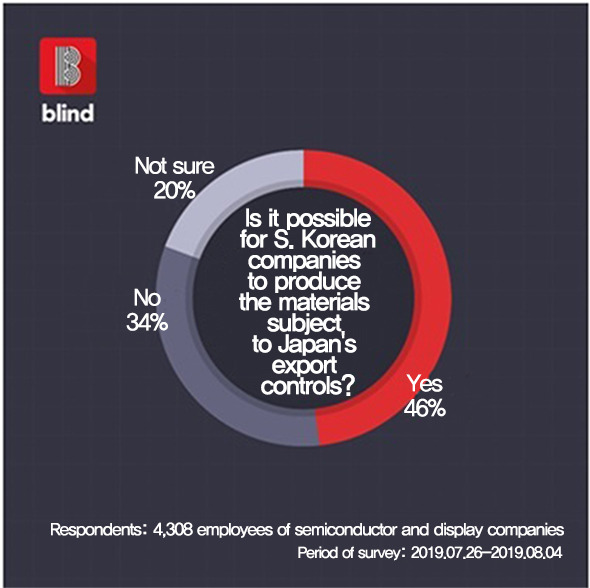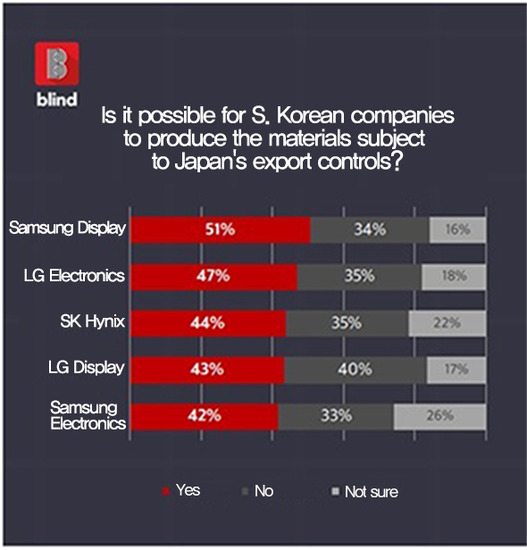 |
|
Is it possible for S. Korean companies to produce the materials subject to Japan‘s export controls?
|
Survey finds many industry insiders see long-term potential in current crisis
In a recent poll of people employed in the semiconductor and display industries, represented by flagship companies such as Samsung Electronics and SK Hynix, one out of every two respondents said that South Korean companies would be able to take over production of the materials on which Japan recently tightened export controls. While respondents tended to say that the export controls would have a negative impact on their companies in the short term, many were optimistic about the long-term impact, especially at small and medium-sized material producers. In a poll of 4,308 people employed in the semiconductor and display industries carried out from July 26 to Aug. 4 by Blind, an anonymous message board application for company employees, 46% of respondents said it would be possible for South Korean companies to take over production of the affected materials. Conversely, 34% of respondents said it wasn’t feasible, while 20% said they weren’t sure. The percentage of employees who are optimistic about the prospects of domestic production remained high when the sample was narrowed down to the 2,050 employees at leading semiconductor and display firms. Among respondents employed at Samsung Display, 51% thought it was possible, along with 47% of those employed at LG Electronics, 44% at SK Hynix, 43% at LG Display, and 42% at Samsung Electronics.
 |
|
Is it possible for S. Korean companies to produce the materials subject to Japan‘s export controls?
|







